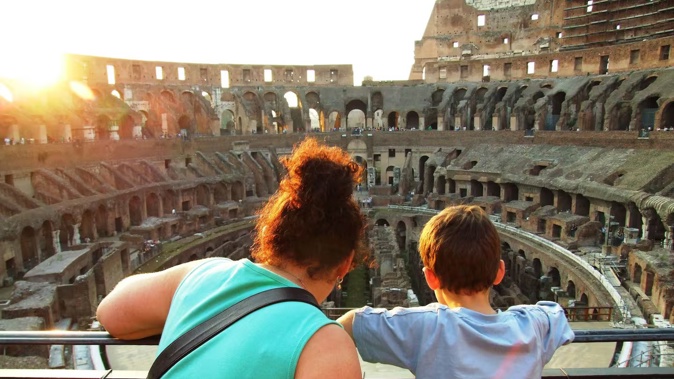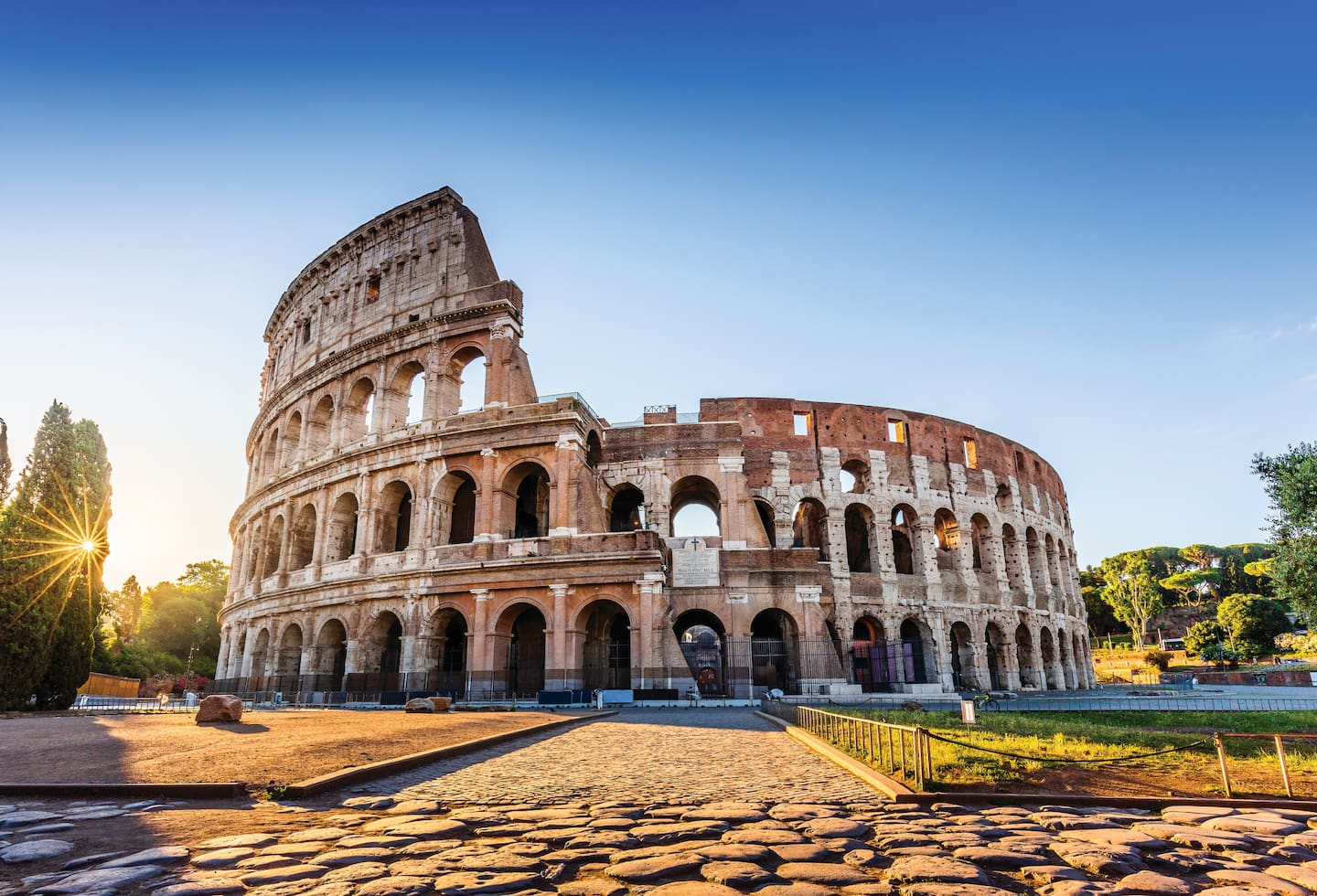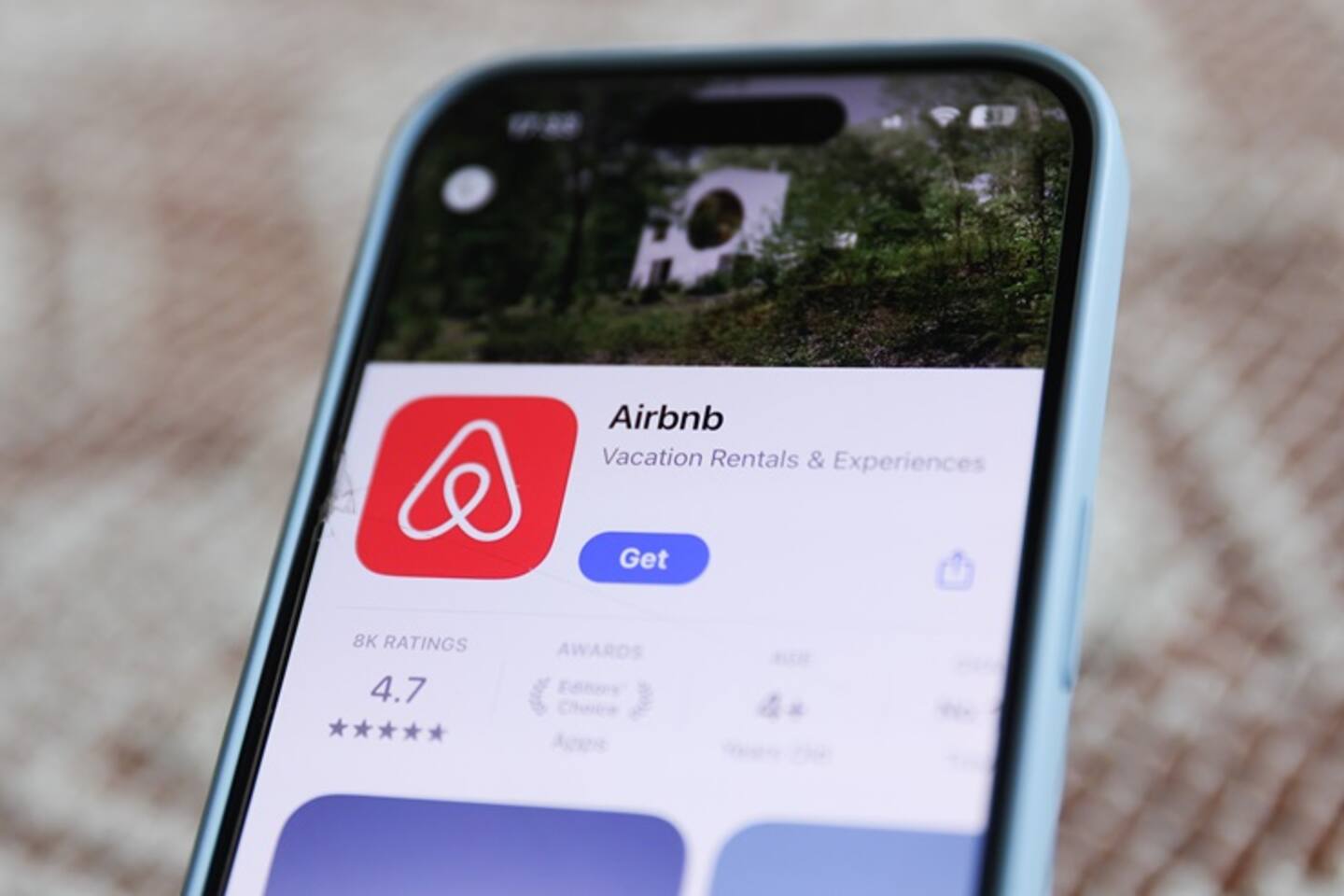
The holiday-rental company is promising armour, swordfights and ‘victuals’ to a chosen few as part of a film promotion – to the dismay of some locals.
Airbnb dangled an unusual possibility this week for fans of history, shields, and very long movies: “Suit up and unleash your inner gladiator inside Rome’s legendary arena”.
The company is offering a chance for a small number of people to follow in the footsteps of fighters and various beasts - with a less bloody outcome - as part of an “exclusive gladiator experience” at the Colosseum that doubles as a promotion for the upcoming film Gladiator II.
“For the first time in nearly 2000 years, the Colosseum returns to its original purpose as a venue for performances, inviting daring warriors to step foot inside the historic arena to forge their own paths and shape their destinies,” the announcement says. It promises the spectacle of a “thrilling showdown” by seasoned gladiators, a meal of “victuals like grapes, pomegranates, almonds, and walnuts”, and a face-off with “fellow warriors”.
To some, those were fighting words.
"We can’t turn one of the world’s most important monuments into a theme park,” wrote Massimiliano Smeriglio, Rome’s councillor for culture, in an Instagram post, as translated by the social media site. Other culture officials sounded similar alarms in media reports.

Locals aren't happy about Airbnb's plan to use the Colosseum for an "exclusive gladiator experience".
The tensions over the Colosseum-Airbnb arrangement come as popular European destinations such as Rome struggle to maintain their quality of life while dealing with influxes of tourists. Critics say the growing use of housing as short-term rentals, like Airbnbs, is contributing to housing shortages for locals in some cities.
The Colosseum blowback is a different beast for the company. Lauren Donovan Ginsberg, a professor of classical studies at Duke University in the United States, said in an email that the site was where gladiators, condemned prisoners and animals were killed, sometimes “in brutal ways designed for degradation and spectacle”.
“The idea of cosplaying the violence done to the bodies of professional gladiators, usually enslaved or lower class citizens or immigrants, on the site of so much violence as a ‘side benefit’ of your Airbnb stay - a company ALSO directly profiting from the over-touristing of Rome - seems to me to be the wrong kind of engagement with ancient Rome,” Ginsberg wrote.
“It is certainly trivialising the life and death of gladiators and many more. Or at least, it isn’t the lesson I hope my students would take away from their study of the Roman arena.”
Airbnb said its Colosseum evening experience comes with US$1.5 million ($2.6m) in support for the ancient site, part of a larger donation for historical attractions and homes in Europe.
“We are proud to support the Colosseum’s ongoing conservation work to find new ways to inspire and educate visitors on the historical significance of this bygone era,” the company said in a statement. Airbnb added that the programme had been “sensitively recreated” with the archaeological team from the museum and re-enactment associations.
Alfonsina Russo, director of the Colosseum Archaeological Park, said in a statement provided by Airbnb that the site would update a permanent exhibition as part of the agreement.
“The goal of the collaboration is to enhance the historical and cultural heritage of the Flavian Amphitheatre through immersive activities that fully respect the monument, based on rigorous historical research,” Russo said.
People can submit a request to book the three-hour “Train for Gladiator II glory” experience between November 27 and December 9; those who are chosen to participate will visit on May 7 or 8. Two trainings will be held, and each can accommodate a total of 16 people. While the experience is free, an overnight stay at the Colosseum is not included and travellers have to get themselves to Rome.

Airbnb said it was contributing to the Colosseum's ongoing conservation efforts as part of its agreement with the Colosseum Archaeological Park authorities. Photo / Getty Images
The archaeological site says the programme “will take place outside of regular opening hours and will not interfere with the usual visits to the site, ensuring complete access to the monument”.
Debra Levinson, founder and chief executive of the Florida-based tour operator Mr and Mrs Italy, has planned gladiator activities for groups in Rome, booking through an established “gladiator” school. But adults cosplaying as Roman warriors within the hallowed walls of the Colosseum is not appropriate, she said.
“It’s a fantastic way for children to engage with history, because it offers a hands-on and memorable way to learn,” Levinson said. “But I also feel that when marketed primarily as an adult entertainment, it does risk diminishing the Colosseum and could turn it into something a little bit more of a novelty than a place of reflection and education.”
Or, as city councillor Enzo Foschi told the Telegraph: “Rome is not Disneyland”.
Still, for some gladiator enthusiasts, the experience sounded promising.
Damion DiGrazia, the founder of non-profit Gladiators NYC, has travelled to fight in modern-day gladiator tournaments not only in the United States but in Tokyo, Poland, Spain, Portugal, and Ireland. He said he understands why the Airbnb promotion might be sensitive, but he hopes the experience will make history come alive in a respectful way.
“The Colosseum is an incredible wonder of the world,” DiGrazia said. “If Airbnb wants to honour [Italian] heritage and bring it back to life, and is offering a great way to have some more tourism, I mean, why not? I think it’s a matter of how they go about it.”
He and other members of the non-profit saw a private screening of Gladiator II recently at the invitation of Paramount Pictures.
“I mean, we’re the gladiators of New York,” he said. “If we got to go to the Colosseum to fight, we would fight so hard. We would draw blood. We’re ready to go.”
Take your Radio, Podcasts and Music with you









